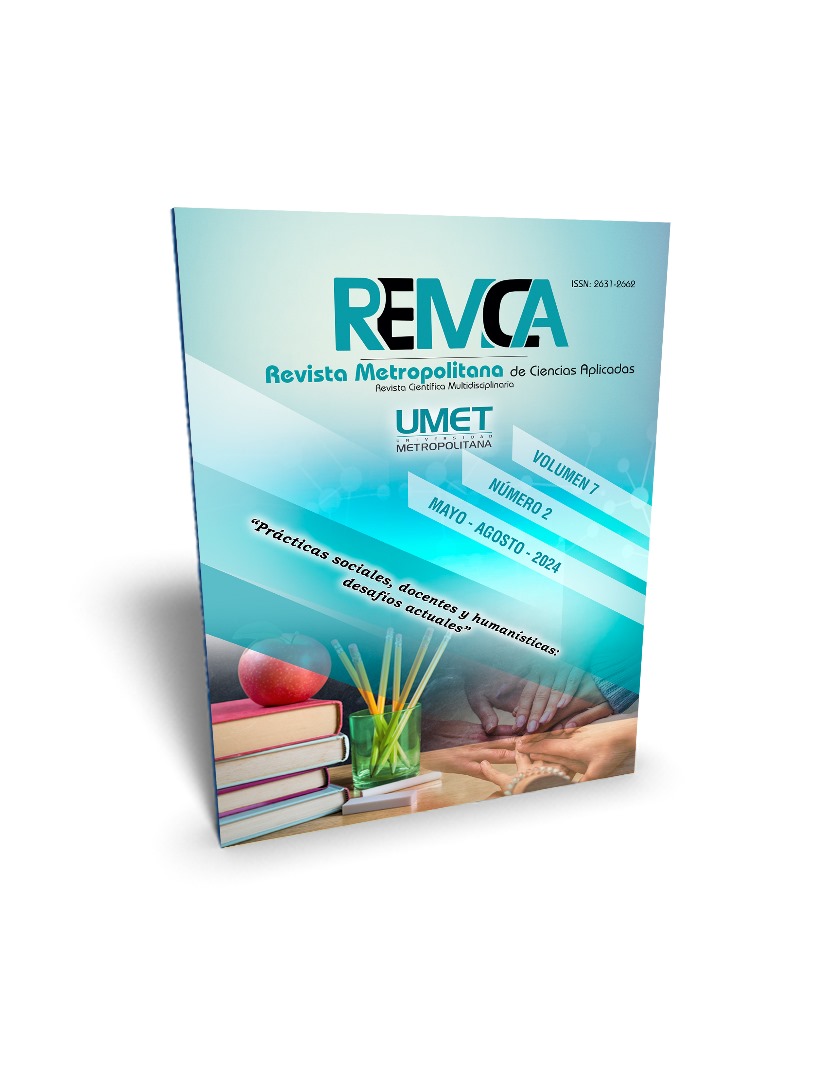Artificial intelligence and applicability in the administration of justice: advances, challenges and points of view
DOI:
https://doi.org/10.62452/8xc51q73Keywords:
Administration, artificial intelligence, justice, law, principles, proceduralAbstract
The integration of AI in the legal field has generated an impact on the administration of justice, its influence on society and its potential to improve efficiency and access to justice. This study evaluates the feasibility and convenience of implementing AI systems in the administration of justice through a doctrinal and legal analysis, considering the potential of AI to optimize judicial processes and its implications in terms of legal certainty and procedural economy. The intersection of AI with law is examined, adopting notions of coding, algorithms and the adoption of Legal Expert Systems. The objective is to present an alternative to address saturation in the justice system, respecting the principles of legality and procedural economy. A qualitative bibliographic methodology is used to analyze the perspective of AI as a tool to reduce times and costs associated with judicial processes, concluding that its balanced and ethically responsible implementation could bring significant benefits, which requires a weighing of regulatory and ethical aspects to guarantee the respect for constitutional guarantees and avoid consequences, thus highlighting the growing relevance of AI in the legal field and its influence on the administration of justice.
Downloads
References
Aguilera García, E. R. (2020). Inteligencia artificial aplicada al derecho. Universidad Nacional Autónoma de México.
Cárdenas, E. R., & Molano, V. M. (2021). Un estudio sobre la posibilidad de aplicar la inteligencia artificial en las decisiones judiciales. Revista Direito, 17. https://doi.org/10.1590/2317-6172202101
Casanovas, P. (2020). inteligencia artificial y derecho: a vuelapluma. Teoría & Derecho. Revista de pensamiento jurídico, 7. https://ojs.tirant.com/index.php/teoria-y-derecho/article/view/248
Ecuador. Asamblea Nacional Constituyente. (2008). Constitución de la República del Ecuador. Registro Oficial 449. https://vlex.ec/vid/constitucion-republica-ecuador-631446215
Ecuador. Asamblea Nacional. (2009). Ley Orgánica de Garantías Jurisdiccionales y Control Constitucional. https://vlex.ec/vid/ley-organica-garantias-jurisdiccionales-643461681
Ecuador. Asamblea Nacional. (2010). Ley del Sistema Nacional de Registro de Datos Públicos. https://vlex.ec/vid/ley-sistema-nacional-registro-643461673
Ecuador. Asamblea Nacional. (2021). Ley Orgánica de Protección de Datos Personales. https://vlex.ec/vid/ley-organica-proteccion-datos-868545422
Farfán Intriago, J. L., Farfán Largacha, J. A., Farfán Largacha, B., & Núñez Vera, J. P. (2023). Inteligencia artificial y Derecho: ¿La justicia en manos de la IA?. Frónesis, 30(2), 173-197. Recuperado a partir de https://produccioncientificaluz.org/index.php/fronesis/article/view/40853
Gamba Cifuentes, G. (2021). La Inteligencia Artificial (IA) y su implementación en la prueba como mecanismo de tutela para los derechos fundamentales. (Tesis de Especialización). Universidad Libre.
Martínez Morales, A. A., & Rosquete De Mora, D. H. (2009). NASPI: Una notación algorítmica estándar para programación imperativa. Télématique: Revista Electrónica de Estudios Telemáticos, 8(3), 55-74. https://dialnet.unirioja.es/servlet/articulo?codigo=5157987
Masbernat, P., & Pasquino, V. (2023). Inteligencia artificial y su problemático impacto en el Derecho. Revista de Educación y Derecho, 28. https://doi.org/10.1344/REYD2023.28.43934
Muñoz, R. (2020). Las TICS en la Administración pública. La inteligencia artificial ante una perspectiva de derechos. https://perso.unifr.ch/derechopenal/assets/files/articulos/a_20200708_05.pdf
Organización de las Naciones Unidas para la Educación, la Ciencia y la Cultura. (2022). La IA y el Estado de derecho: Fortalecimiento de capacidades para los sistemas judiciales | UNESCO. https://www.unesco.org/es/artificial-intelligence/rule-law/mooc-judges
Riestra Gaytan, E. (1995). Informática jurídica aplicada a la enseñanza del Derecho. Universidad Nacional Autónoma de México.
Solar Cayón, J. I. (2020). La inteligencia artificial jurídica: Nuevas herramientas y perspectivas metodológicas para el jurista. Revus. Journal for Constitutional Theory and Philosophy of Law / Revija za ustavno teorijo in filozofijo prava, 41. https://doi.org/10.4000/revus.6547
Tique-Onatra, L. Á. (2018). La responsabilidad del Estado colombiano como consecuencia del fenómeno de la mora judicial. https://repository.ucatolica.edu.co/entities/publication/cd4b7cee-39da-4374-a350-146cd383172b
Valdés, J. T. (2020). Derecho Informático. Cuarta edición, 642. http://ru.juridicas.unam.mx/xmlui/handle/123456789/10856
Downloads
Published
Issue
Section
License
Copyright (c) 2024 Brian Alexis Santamaría-Jerez, Diana Maricela Bermúdez-Santana (Autor/a)

This work is licensed under a Creative Commons Attribution-NonCommercial-ShareAlike 4.0 International License.
Authors who publish in Revista Metropolitana de Ciencias Aplicadas (REMCA), agree to the following terms:
1. Copyright
Authors retain unrestricted copyright to their work. Authors grant the journal the right of first publication. To this end, they assign the journal non-exclusive exploitation rights (reproduction, distribution, public communication, and transformation). Authors may enter into additional agreements for the non-exclusive distribution of the version of the work published in the journal, provided that acknowledgment of its initial publication in this journal is given.
© The authors.
2. License
The articles are published in the journal under the Creative Commons Attribution-NonCommercial-ShareAlike 4.0 International License (CC BY-NC-SA 4.0). The terms can be found at: https://creativecommons.org/licenses/by-nc-sa/4.0/deed.en
This license allows:
- Sharing: Copying and redistributing the material in any medium or format.
- Adapting: Remixing, transforming, and building upon the material.
Under the following terms:
- Attribution: You must give appropriate credit, provide a link to the license, and indicate if any changes were made. You may do this in any reasonable manner, but not in any way that suggests the licensor endorses or sponsors your use.
- NonCommercial: You may not use the material for commercial purposes.
- ShareAlike: If you remix, transform, or build upon the material, you must distribute your creation under the same license as the original work.
There are no additional restrictions. You may not apply legal terms or technological measures that legally restrict others from doing anything the license permits.




